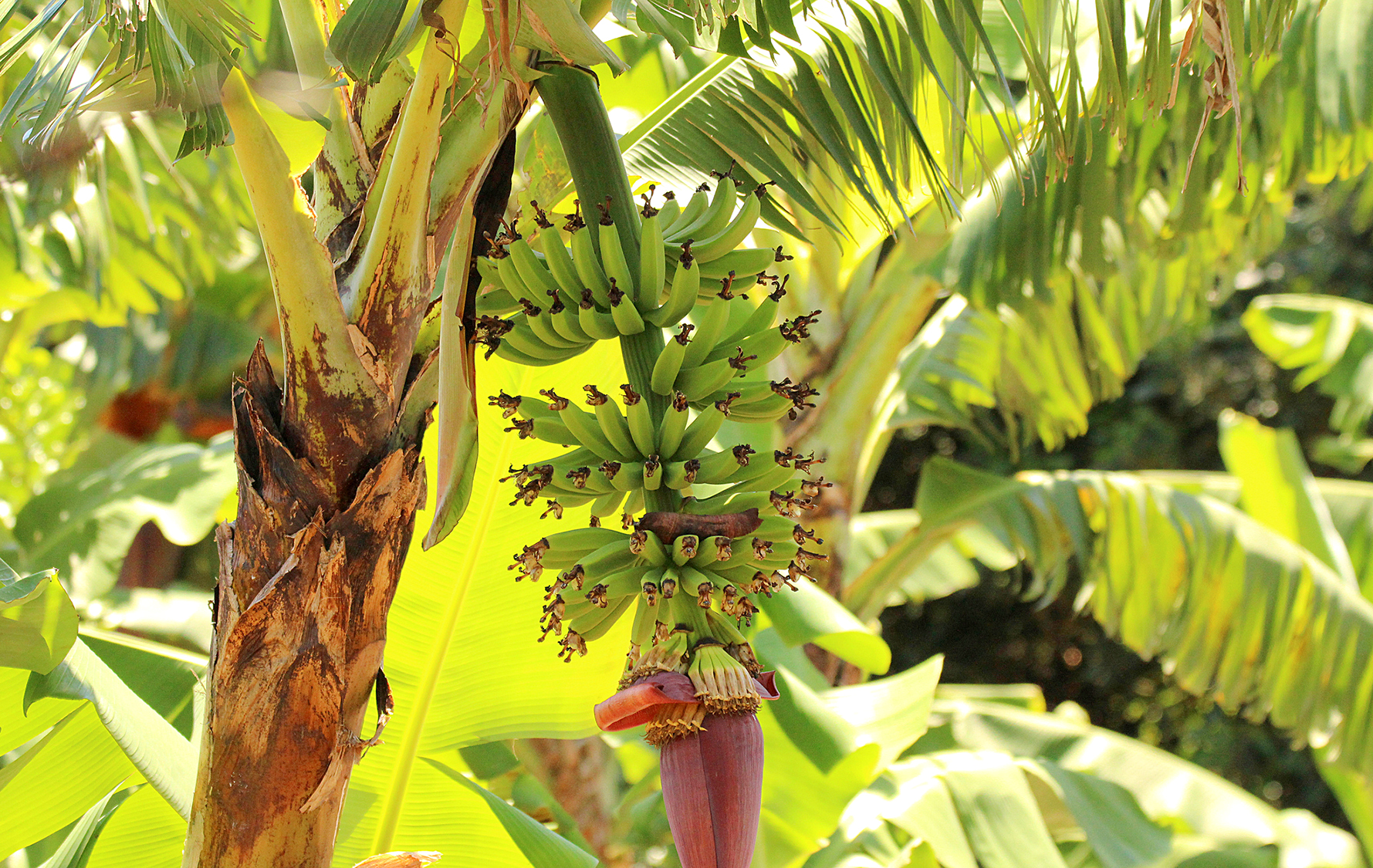KwaZulu-Natal is affectionately known as “kwelikabhanana” because bananas are one of the most abundant fruits in the province, especially on the coast. The fruit is the bread and butter of the Roselands community in Ramsgate.
Bananas are the star crop and an income earner for the 25ha KwaNyuswa Agricultural Farm. The farm’s major stakeholder is the Roselands community trust, which has 103 indirect beneficiaries. The farm was reclaimed in 2008.
Even though the farm has been a success story, it now faces yield losses owing to a destructive viral disease known as Bunchy top, which affects banana and plantain plants and is caused by the banana bunchy top virus (BBTV).
The virus has killed 3,000 plants at the farm since February 2025, resulting in a R500,000 revenue loss.
The most common symptoms include stunted growth and a “bunched” appearance of new leaves, which are often more upright and narrower than usual. Infected plants rarely produce fruit, leading to significant yield loss, and the virus is spread by infected planting material or the banana aphid.
The fight against the disease demands more labour for scouting and treatment, which increases production costs, among other challenges.
Intervention
/file/dailymaverick/wp-content/uploads/2025/11/1000135136.jpg)
After engaging with banana growers in the Ugu District Municipality on 26 September 2025, the Deputy Minister of Agriculture, Nokuzola Capa, delivered agrochemicals to commercial, smallholder and subsistence banana growers in the area affected by BBTV on 12 November.
The department announced: “With every handover of agrochemicals, farmers are being equipped to protect their crops, safeguard their income and secure a brighter future for their families and workers. Deputy Minister Capa reaffirmed the department’s unwavering commitment to stand with growers, ensuring they are supported through every challenge that threatens their livelihoods.”
Capa said: “The threat of BBTV in the Ugu District Municipality of KZN has been a persistent issue since 2015. The department has allocated and spent resources on agrochemicals to contain the disease and train local agricultural advisers, as well as raise awareness among local community members.”
Replanting
Sphephelo Ngubane, KwaNyuswa’s manager of farm operations and technical support, told Daily Maverick that agrochemicals are a step in the right direction towards dealing with the virus. However, he said that to recover from the damage caused by the disease, the farm needs help replanting the bananas that have been lost.
“We need items that are essential for the recovery of lost yields. This includes banana seedlings, MAP planting fertiliser, top dressing fertiliser, and irrigation input. As we will establish new fields away from our current schemes, [we need] top dressing fertiliser, [a] packhouse revamp,” Ngubane said.
“We are ready to provide the capacity to plant ourselves to sustain our banana operations as we supply commercial businesses and are contributing to the country’s economy, [decreasing the] unemployment rate and [improving] food security,” Ngubane added.
He said the chemicals will play a crucial role in managing the aphids, particularly assisting small-holding farmers.
“Well, it is quite true that smallholders will find it difficult to buy such chemicals, such a handover would assist in them being able to add value in controlling the BBTV. Training is needed for them as well, and we are open to sharing the little we have.”
Ngubane said consistent symptom tracking and record keeping help the farm stay ahead of the virus. “We continuously scout for new or primary symptoms for all our banana plants with an intention to be proactive to control aphids’ movement and disease spread from one plant to the next. The most essential thing is to ensure field monitoring through scouting and record keeping to ensure that you are always ahead of the diseases, [and to] follow treatment protocols and recommendations by the research institutions such as ARC [Agricultural Research Council] and senior farmers,” Ngubane said.
“There’s a huge information gap on economically stressful disease; more research [is] needed about the alternative control methods for aphids, ways to minimise spread, awareness to small-scale farmers, and integration with SADC countries like Mozambique, Zambia which have been impacted.
“We are highly grateful for the chemicals from the deputy minister […] and to organisations such as the South Natal Banana Association […] for the continuous support they have given us,” he said.
Ngubane emphasised the significance of the banana industry in KwaZulu-Natal’s South Coast region: “Bananas are our community’s backbone. If we control BBTV now, we not only save a crop, but a whole rural community.” DM




 Illustrative image: Banana growers in the Ugu District Municopality along KwaZulu-Natal’s South Coast are battling to get to grips with the destructive banana bunchy top virus. (Photo: iStock)
Illustrative image: Banana growers in the Ugu District Municopality along KwaZulu-Natal’s South Coast are battling to get to grips with the destructive banana bunchy top virus. (Photo: iStock) 